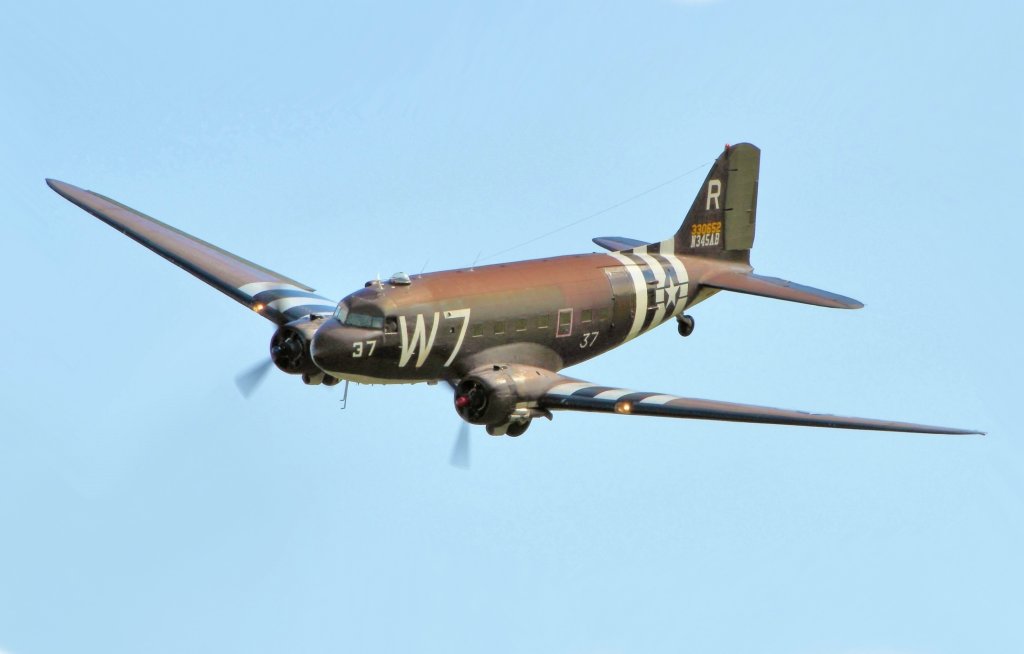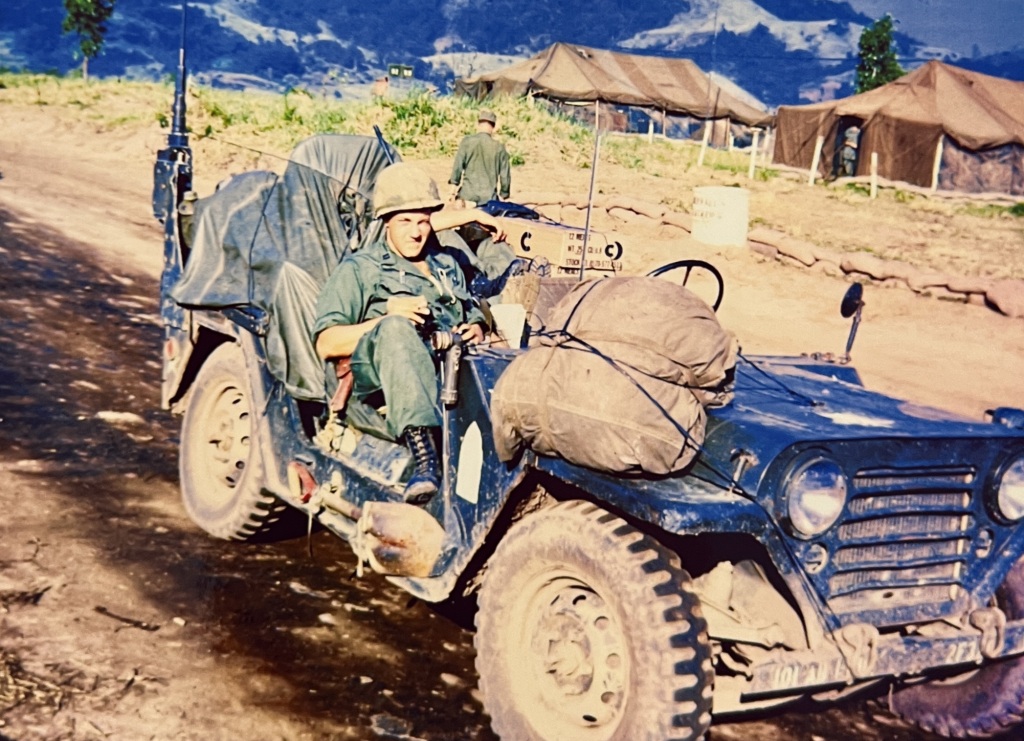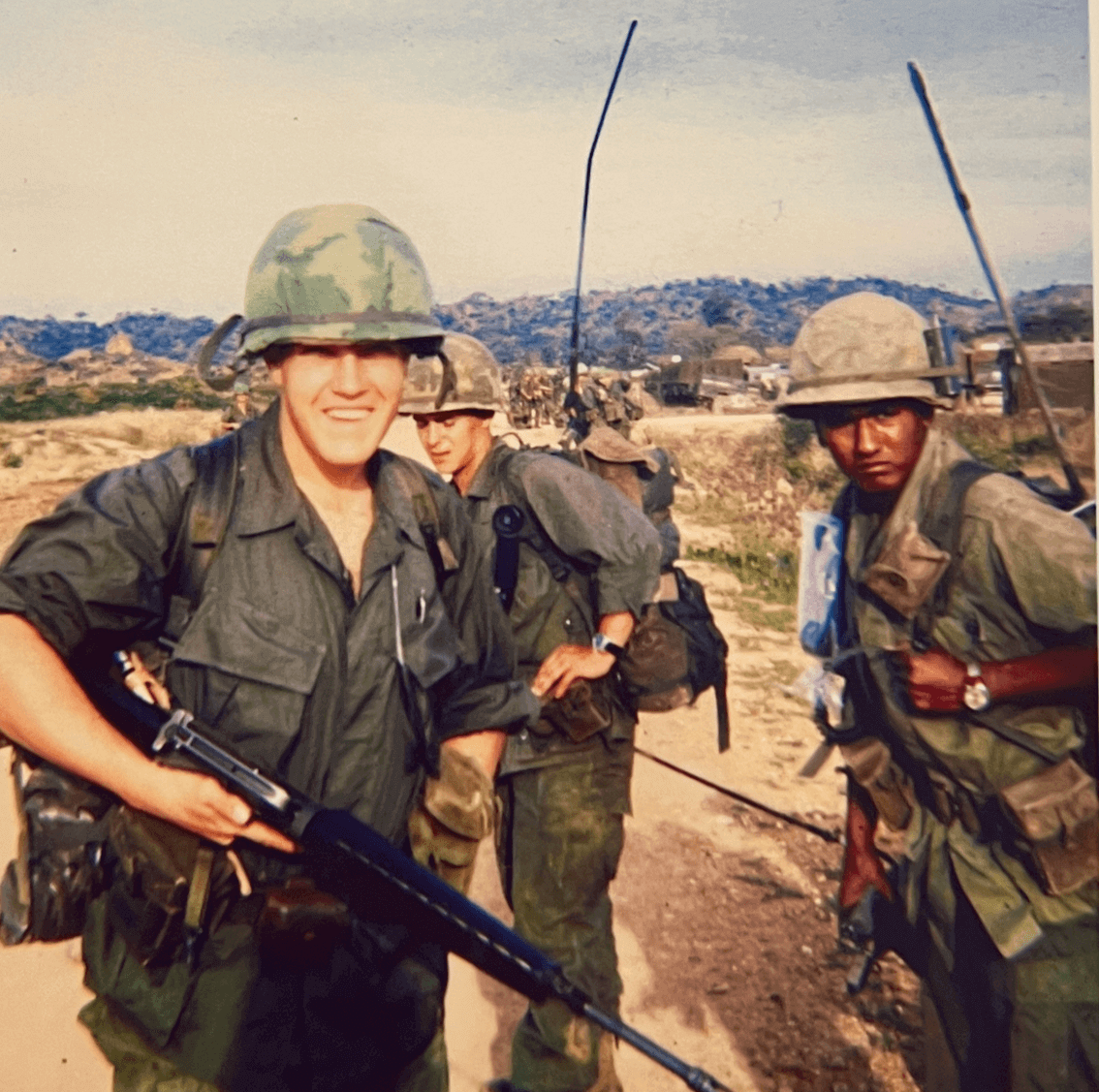The year is 1966: Richard Nowakowski, from Town Bank, never thought he would be the first man to jump out of the plane, but there he was, staring out the door of a C-47 Skyplane during “jump week,” where he and soldiers ranked below him had to learn how to execute one of the most dangerous maneuvers asked of recruits in the Army.
Paratroopers only had a 50% survival rate, Nowakowski said, because they make easy targets as they approach the ground.
“But they sure as hell didn’t tell us that,” he said. Later in the war, Nowakowski would have to lead and train new soldiers through their own jump week.

Nowakowski was born in 1942 to Polish parents in Carnegie, Pennsylvania. His father served in the Second World War, but Nowakowski was unsure if military service was for him. His bachelor’s degree in physics, from Washington and Jefferson College, promised a lucrative career. But there was a catch: He had to get a master’s or a doctorate first.
So without a clear path forward, he enlisted in the Marine Corps reserve and soon took a 12-week training course in Quantico, Virginia, home to Marine Corps Base Quantico, one of the largest Marine bases in the country. It was 12 grueling weeks of intense pressure, physical exhaustion and getting screamed at.
But Nowakowski never served in the Marines; he – thanks to much begging – transferred to the Army during the Cuban Missle Crisis as the nation prepared for potential war. He was soon to be married, and his Marine platoon was soon to be activated. His new post allowed him some breathing room with a new marriage that he did not want to “screw up,” he said.
He did not serve in an active duty role for several years. He would have remained at his unionized butcher job making $15 an hour in the 1960s had he not obligated himself to service by enrolling in a military college program that helped him with his tuition expenses.
“I was making serious money as a butcher, certainly more than they were gonna pay me in the service,” he said.
But duty called. Nowakowski began active duty in 1964 as a lieutenant field artillery officer; he learned to be a forward observer for 105mm self-propelled howitzers.
He was sent to Vietnam in 1967, but not before going through jump school. He never jumped from a plane in a combat scenario. For most of his career, he was a tactician and forward observer, which meant spotting and notifying artillery about the location of enemy units.

Nowakowski was deployed to Cam Ranh Bay under the 327th Infantry Regiment, where he remembers being “numb and scared.” The man he replaced was a member of his college fraternity.
“It’s a small [expletive] world,” he said.
Nowakowski had many assignments in Vietnam. But he described a tactical mission – an amphibious assault on the Chu Lai seaport, most vividly. “I was responsible for the entire fire plan,” he said, which meant sitting down with an E8 master sergeant, an E6 staff sergeant and an E4 radio telephone operator to decide how infantry and supporting firepower, including the Battleship New Jersey, should be used in the attack.
He became known as a successful tactician in his career. But even the best plans involve the death of friends and allies. He remembers two men, under his command, dying in battle.
“It was a traumatic experience. We got hit by a brigade, not sure how big it was, but we intercepted Russian on the radios. They hit us, two companies wiped out. Two of my men died,” he said.
Nowakowski remained on active duty for many years after leaving Vietnam. Back home, he remembers getting a “phone call from the Army – they wanted to know if I was interested in getting my master’s and my Ph.D. in rocket design,” he said.
He pursued continued education throughout his military career. But a Ph.D. evaded his grasp. He told the Herald: “I said no! I was tired of school, I wanted to get back in the mud with the enlisted. That was one of the big mistakes of my life.”
Another call came soon after, a request to enter the Korean War. “I said yes, that was probably another one of my big mistakes,” he said.
He was in Korea for 13 grueling months, beginning in 1970. He described the country as awash in poverty and sundered by war. Nowakowski’s battalion, and the base that housed it, was leased to the Korean government for use as it saw fit.
“The Korean military came in and audited every vehicle, every tool kit, every house, every building, to see any defects. And of course, our government had to pay to fix everything,” he said.
“As people left the company, they weren’t replaced. We were down to 150 cadre from 600. Our job was to train the South Koreans on how to use the 8-inch self-propelled howitzer. By the end, I was second in command.”

He described his Korean allies as tough-as-nails fighters. He said the higher-ranking officers would discipline their soldiers with punches to the genitals and hard smacks to the face.
“One time, one of my bosses told the Korean major that their tactical operations center wasn’t camouflaged well enough. The Korean major pulls everybody from that section up – 14 to 15 people – lines them up by rank and smacks them in the face, kicks them in the shins, in the balls … They could hardly take it,” he said.
1971 brought another overseas deployment, this time to Fulda, Germany, to “play games with the Russians,” he said, as part of the 2nd Armored Division.
Nowakowski served for 21 more years. He was offered the rank of full colonel, but to retire at that rank would require several more years of service. He retired in 1992 – he was tired, and with a new wife, was eager to get out. He bought a four-bedroom home in Town Bank in 1995, just 300 feet from the bay. He has lived there ever since – and loves being a local.
Contact the author, Collin Hall, at chall@cmcherald.com, or by phone at 609-886-8600 ext. 156








